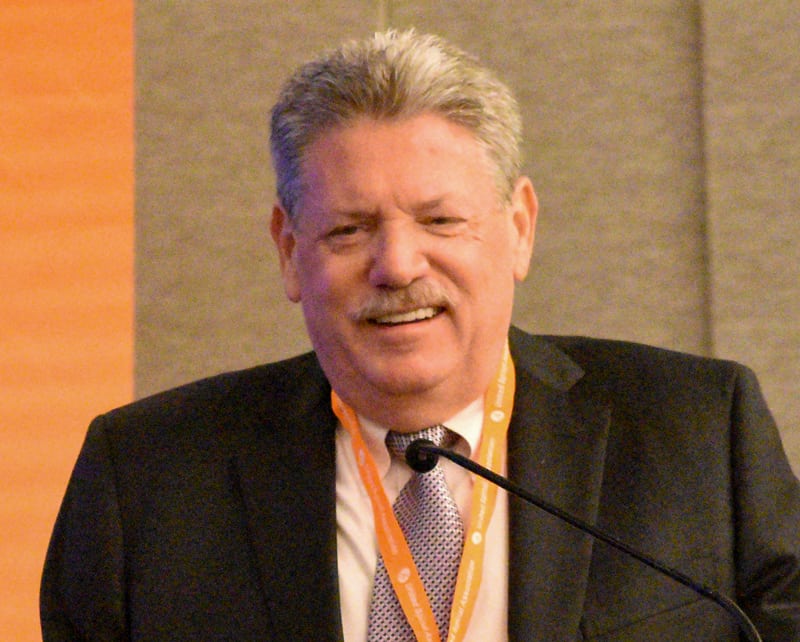
Big Ideas in Improving Homecare
With James Weisman

Editor’s Note: The U.S. Supreme Court’s 1999 landmark decision in Olmstead vs. L.C. found that the Americans with Disabilities Act gives disabled people the right to live in the most integrated setting possible. If a state funds both nursing facilities and homecare programs, then a disabled person has a right to choose homecare.
But why stop there, asks United Spinal Association President and CEO James Weisman. Why not use Olmstead to increase the pay of home health workers?
NEW MOBILITY: What’s the Big Idea about leveraging the Olmstead decision?
James Weisman: The big idea is that if the responsibility of the government, under Olmstead, is to keep you in the community, then the government must raise the wages of home health workers to attract people to the profession.
Most home care is paid by Medicaid. Both the feds and state governments administer Medicaid, and Health and Human Services, through the Centers for Medicare & Medicaid Services, makes the standards for home care — or what you’re eligible for.
NM: Are states required to provide homecare?
JW: HHS doesn’t require states to provide home care, but most states do in some way. If a state is providing home care through Medicaid, and decides that it can’t deliver care to you because there are no workers, what’s their responsibility? Is it to put you in a nursing home? Or to keep you in the community? Right now, you can end up in a nursing home, by default, even if you’re eligible for homecare. The default to the nursing home is so much more expensive than home care. That bodes well in our favor, if policymakers begin to listen.
NM: We know that supply for workers doesn’t meet the demand for services. What other solutions might attract more people to the field?
JW: If you read Olmstead as saying states have to change the status quo and get people out of institutions, or prevent them from going in, you see states are not doing it. They’re throwing up their hands saying, “That’s all we can do! We’re paying minimum wage or slightly over, and that’s all we can do.” I don’t think Olmstead allows that. Olmstead says figure it out.
So what are the solutions? Obviously, raising wages. Other ways to turn homecare into a real job, as I think Olmstead demands, could be immigration incentives, which this administration, of course, won’t do. But others might. You could prefer people for immigration who want to work in homecare. It’s employment of last resort right now, and whoever the newest immigrants are, that’s who is doing it. Either way, we need immigrants, and we don’t have them.
The other thing to do is make it more of a job — give workers benefits and paid vacations — and virtually none of that happens now.
Creating a job career path, too, would help. You come in as homecare worker, and then maybe you take nursing classes. States have to undertake those planning initiatives to meet Olmstead.
This is a problem that is not solving itself. It’s not going to go away. Now the economy has gone in the dumpster, so people are going to be laid off, and then you’ll get homecare workers again. I hate saying it like that, but if layoffs start, they’ll come out of the woodwork. It’s strictly a job for those people, though. Not a career.
NM: How can our readers help?
JW: They have to open their mouths. These types of changes don’t happen by themselves, especially now that resources are going to be stretched and we’re saying stretch them even more.
They have to tell their elected officials what they expect from them, and if they can’t get what they need, they should let us know. We want to help them to get to their elected officials, and to be their advocates. Squeaky wheels get some grease on this.
Support New MobilityWait! Before you wander off to other parts of the internet, please consider supporting New Mobility. For more than three decades, New Mobility has published groundbreaking content for active wheelchair users. We share practical advice from wheelchair users across the country, review life-changing technology and demand equity in healthcare, travel and all facets of life. But none of this is cheap, easy or profitable. Your support helps us give wheelchair users the resources to build a fulfilling life. |


Recent Comments
Bill on LapStacker Relaunches Wheelchair Carrying System
Phillip Gossett on Functional Fitness: How To Make Your Transfers Easier
Kevin Hoy on TiLite Releases Its First Carbon Fiber Wheelchair